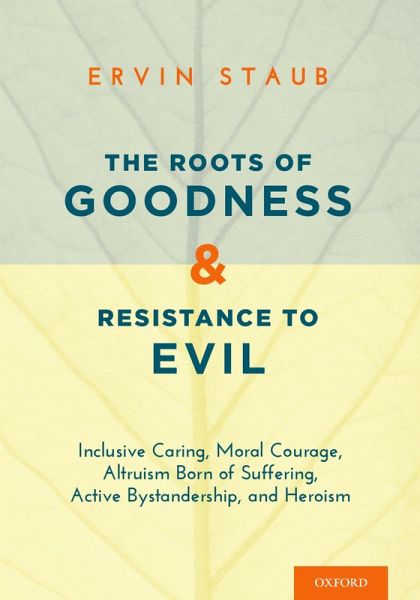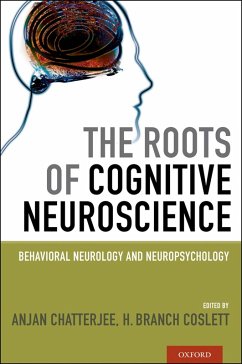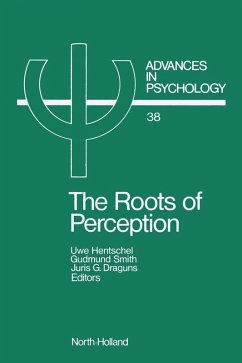
The Roots of Goodness and Resistance to Evil (eBook, PDF)
Inclusive Caring, Moral Courage, Altruism Born of Suffering, Active Bystandership, and Heroism

PAYBACK Punkte
12 °P sammeln!
In The Roots of Goodness and Resistance to Evil, Ervin Staub draws on his extensive experience in scholarship and intervention in real-world settings to illuminate the socializing experiences, education, and training that lead children and adults to become caring people and active bystanders who help others, and act to prevent violence and create caring societies. The book offers an excellent balance of Staub's important and influential recent articles and essays in the field and newly written chapters. It explores why we should help and not harm others. It offers wide-ranging examples and res...
In The Roots of Goodness and Resistance to Evil, Ervin Staub draws on his extensive experience in scholarship and intervention in real-world settings to illuminate the socializing experiences, education, and training that lead children and adults to become caring people and active bystanders who help others, and act to prevent violence and create caring societies. The book offers an excellent balance of Staub's important and influential recent articles and essays in the field and newly written chapters. It explores why we should help and not harm others. It offers wide-ranging examples and research about the roots of everyday helping and heroism, rescue in the Holocaust and elsewhere, overcoming trauma to become altruists, reconciliation in Rwanda and other ways of resisting evil, and more. Staub engages with ways to promote active bystandership in the service of preventing violence, helping people to heal from violence, and building caring societies. He explores the range of experiences that lead to active bystandership, including socialization by parents, teachers (and peers) in childhood, education, experiential learning, and public education through media. He examines what personal characteristics or dispositions result from such experiences, which in turn lead to caring and helping. Staub also considers how circumstances influence people--both individuals and whole groups--and how they join with personal dispositions to determine whether people remain passive in the face of others' need or instead help others and behave in morally courageous or even heroic ways. He considers how moral and caring values can be subverted by circumstances, and outlines ways to resist that possiblity. He also considers how past victimization and the resulting psychological woundedness, which can lead to "defensive violence" or hostility toward people and the world, may be transformed by other experiences, leading to "altruism born of suffering." The book draws on research and theory as well as work in applied settings. Ultimately this book will help readers explore how we can turn ourselves into active, helpful people and what we need to do to create peaceful and caring societies.
Dieser Download kann aus rechtlichen Gründen nur mit Rechnungsadresse in A, B, BG, CY, CZ, D, DK, EW, E, FIN, F, GR, HR, H, IRL, I, LT, L, LR, M, NL, PL, P, R, S, SLO, SK ausgeliefert werden.













